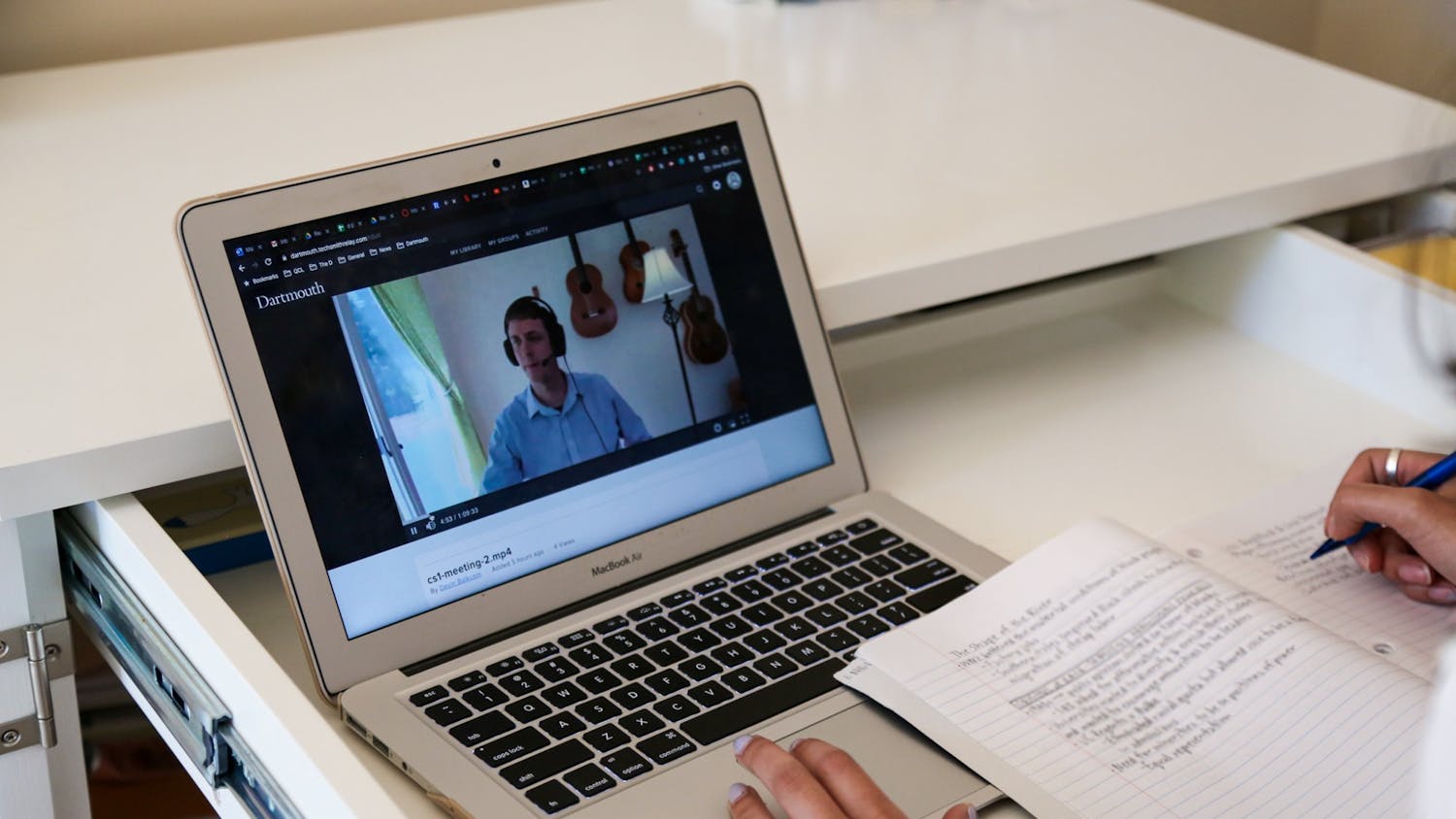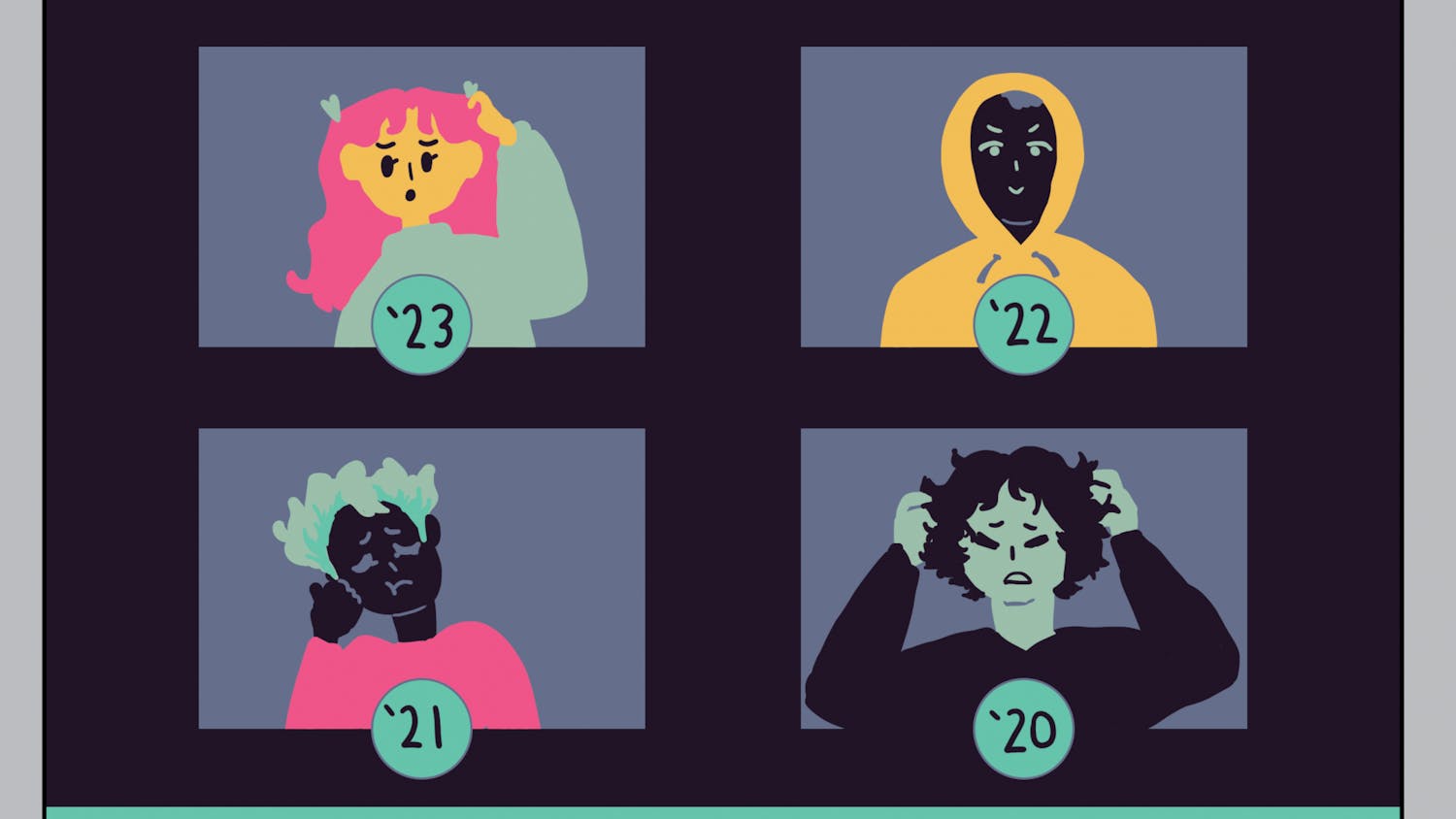By spring term, freshmen at Dartmouth have usually nestled into their favorite study spaces and figured out their preferred methods of learning. But now, with the ambiance of the Tower Room and the bustling traffic on Blobby farther away than most of us would like, many Dartmouth students have had to adjust to learning at home.
On campus, all students have access to similar resources. This term, however, learning environments can differ drastically. A common piece of advice that ’23s receive from upperclassmen is to separate schoolwork from other parts of life. When we’re on campus, this means saving work for the library and sleep for your room. But what happens when your workspace and bedroom are one in the same, or when social distancing means all you can do to pass the time is work?
The COVID-19 pandemic forced Nathalie Korhonen Cuestas ’23 to return home to London for the spring term. Her time zone puts her five hours ahead of Hanover, but since her classes either meet in the Hanover morning or are asynchronous, the time difference hasn’t posed much of an issue. However, she has had to learn how to study in her home.
“It’s strange not having the same separation between living and study spaces and spending so much time in one space,” Korhonen Cuestas said. “Study breaks and distractions end up being less active. [I’m] going on my phone rather than seeing a friend or walking to go get a meal.”
Not only does being at home mean students can’t enjoy many of the usual pastimes — or distractions — that consume their time on campus, but federal and state guidelines for social distancing have severely limited the activities that students can enjoy at home. Many students have decided to take advantage of their extra free time by enrolling in a fourth class (which many suspect led Darthub to crash at the beginning of the course add/drop period this term). Taking on another class may fulfill graduation requirements or help students get ahead on a major, and it also helps students stay focused until they can be back on campus.
“Since classes became credit/no credit and I knew that I’d have more time on my hands, I decided to take four courses instead of three,” Korhonen Cuestas said, adding that certain classes seemed more appealing than others in the virtual format. “If I’d had the choice, I would have wanted to take my seminar at another time — the online format really doesn’t lend itself to the class, but obviously I can’t change that.”
Amy Tsai ’21, who was off campus during winter term, expressed similar sentiments. With the grading system moving to credit/no credit, taking on a fourth course for her economics major made sense.
“I figured if I’m still paying the same tuition, I might as well take advantage of my time,” Tsai said.
The asynchronous nature of many classes has proven both beneficial and difficult to students. While the flexibility of recorded lectures means that students in different time zones aren’t at a disadvantage, many students have discovered the difficulty of keeping themselves accountable without live classes.
“When you’re at Dartmouth, you have to go to classes and pay attention, but when the classes are asynchronous, all you have, technically, is a quiz or assignment,” Tsai said. “Right now, I’m basically pushing all of my work to the day before the quiz, and that makes it hard because there’s no real set schedule. Everything is up to you, so you have to find the motivation to block out a schedule and make sure everything is on time.”
Jesse VanNewkirk ’23 shared Tsai’s concerns. All of the classes in which VanNewkirk was originally enrolled were asynchronous.
“I needed some interactive work because my [psychology] class was supposed to have all the work due on June 4, with nothing official in between,” VanNewkirk said. “Knowing myself, I figured that I would not be very successful, even though it’s pass/fail, so I decided to take an engineering class instead.”
On campus, many students incorporate study groups into their academic routine. While the Academic Skills Center is up and running to provide tutoring and other services, some students find that the remote format of classes creates a barrier to natural collaboration.
“I probably wouldn’t study with people via Zoom, especially if I didn’t know them before taking the class,” Korhonen Cuestas said. “Zoom calls are too painfully awkward.”
While some students can navigate these changes from comfortable surroundings, others have to adjust to new environments. VanNewkirk has never had to do schoolwork from his home in Seattle, Washington. Before coming to Dartmouth, he attended a boarding school in California. For VanNewkirk, staying focused is already a difficult task.
“I have pretty bad ADHD, so I need to be studying in a really loud space. It needs to be like Grand Central Station, where there’s tons of people around,” VanNewkirk said.
Since studying on Blobby and FFB won’t be happening anytime soon, VanNewkirk replicates the background noise and activity that he needs to stay focused by blaring EDM music while he works. According to VanNewkirk, this strategy is effective, except for when he’s doing readings for the class GOVT 6, “Political Ideas.”
Strategies vary for different students, and it’s often a continuous effort to find optimal study habits. What works for one person might not necessarily work for someone else. With nine weeks still ahead of us, there’s plenty of time to see how our new routines will develop.




